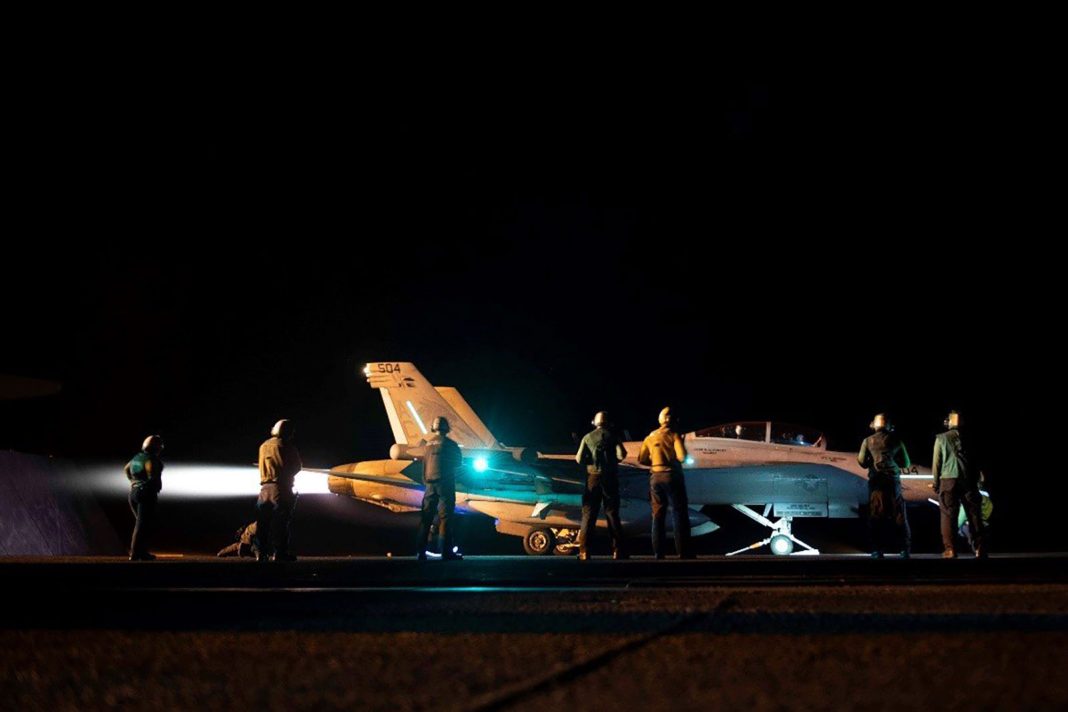In a classified letter, General Michael Erik Kurilla, the head of US Central Command (Centcom), suggested the US should take a more forceful approach against the Houthis, the report said. The letter comes amid fears that Red Sea tensions could draw in Russia.
The WSJ cited an exclusive article published by Middle East Eye last month which revealed US intelligence agencies learned Russian President Vladimir Putin has mulled arming Yemen’s Houthis with anti-ship cruise missiles.
MEE revealed that Putin was dissuaded from the move by Saudi Arabia’s Crown Prince Mohammed bin Salman.
“Putin engaged Mohammed bin Salman who requested them (Russia) not to pursue the arrangement,” the senior US official previously told MEE.
According to The Wall Street Journal, the Joe Biden administration still believes Putin could pursue the arrangement and is confidently trying to stop Russia from arming the Houthis.
Fears about the Houthis’ access to potentially more sophisticated weapons are likely to grow, following a drone attack on Tel Aviv on Friday that killed one person and injured several others. The Houthis claimed responsibility for the strike.
Russia’s deliberations to step up its involvement adds a new dimension to the conflict. Moscow is upset with US and European military support for Ukraine. Putin stated last month that Moscow is considering providing long-range missiles to third countries to hit the assets of NATO countries.
“There is a connection between Russia’s war on Ukraine and the Red Sea,” General Frank Mckenzie, the retired commander of US Central Command, told MEE.
But aiding the Houthis is not straightforward for Moscow, which enjoys good ties to Persian Gulf monarchies and Iran, the Houthis main foreign backer.
Saudi Arabia and the UAE launched a campaign against the Houthis after Yemen descended into war in 2014 amid concerns a Houthi takeover of Yemen would install Tehran’s partners at their borders.
The Saudi-led coalition launched thousands of air strikes on Yemen which failed to dislodge the Houthis but resulted in thousands of civilian deaths and a major humanitarian crisis. The Houthis responded by lobbing missiles and drones at civilian infrastructure in Saudi Arabia and the UAE.
Since 2022, an uneasy truce has held between the Houthis and Saudi-backed forces, but Persian Gulf states are alarmed about rising tensions in the Red Sea. The Houthis began attacking commercial ships in November, in what they said was in solidarity with Palestinians in the Gaza Strip.
The attacks have upended global trade, forcing shipping companies plying goods between Europe and Asia to take a circuitous route around Africa to avoid Houthi attacks.
The Houthis have also struck at the core of the US’s great power projection in the region: protecting sea lanes of communication.
In January, the US began striking Houthi positions in response to the attacks.
MEE reported previously that Houthi fighters have been tapping commercially available maritime intelligence to draw up their target lists in the Red Sea.
The WSJ reported that Kurilla warned in his letter that “US service members will die if we continue going this way”, as he argued for a more forceful response to Houthi attacks.
The report added that Centcom has been instructed to draw up a list of expanded targets, including specific Houthi fighters.
